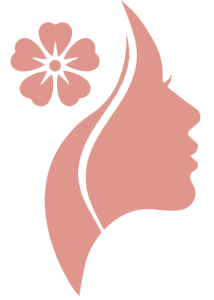Understanding Stress and Anxiety
Before diving into the benefits of massage, it’s important to understand what stress and anxiety are and how they affect the body.
What Is Stress?
Stress is the body’s natural response to a perceived threat or challenge. When you encounter a stressful situation, your body releases hormones like cortisol and adrenaline. These hormones trigger the “fight or flight” response—your heart rate increases, muscles tense up, and breathing becomes faster.
While short-term stress can be helpful in urgent situations, chronic stress can lead to serious health problems, including:
-
High blood pressure
-
Sleep disorders
-
Muscle tension
-
Weakened immune system
-
Digestive problems
-
Mental health issues
What Is Anxiety?
Anxiety is a feeling of excessive worry, fear, or nervousness. It can occur as a response to stress, or it can be a mental health condition on its own (such as generalized anxiety disorder or panic disorder). Anxiety often comes with symptoms like:
-
Rapid heartbeat
-
Restlessness
-
Difficulty concentrating
-
Fatigue
-
Irritability
-
Insomnia
Left untreated, anxiety can disrupt daily life and impact relationships, work, and physical health.
How Massage Reduces Stress and Anxiety
Massage therapy involves the manipulation of muscles and soft tissues to relieve tension, improve circulation, and promote relaxation. While it is often associated with physical benefits, research has shown that massage also has a powerful effect on mental health, particularly in reducing stress and anxiety.
1. Lowers Cortisol Levels
One of the most significant ways massage helps reduce stress is by lowering cortisol, the body’s primary stress hormone. High cortisol levels are associated with anxiety, weight gain, sleep disturbances, and high blood pressure. Studies have shown that massage can reduce cortisol levels by up to 30%, creating a more balanced and relaxed physiological state.
2. Boosts “Feel-Good” Hormones
Massage increases the production of serotonin and dopamine—neurotransmitters that play a key role in mood regulation. These “feel-good” chemicals help reduce anxiety, improve mood, and promote a sense of well-being. A rise in serotonin levels also supports better sleep and a stronger immune system.
3. Activates the Parasympathetic Nervous System
The human nervous system has two main components: the sympathetic (“fight or flight”) and the parasympathetic (“rest and digest”) systems. Massage encourages parasympathetic activity, which calms the mind and body, reduces heart rate, and supports digestion and healing. This shift helps bring the body back to a state of balance after prolonged stress.
4. Relieves Muscle Tension
Stress and anxiety often cause physical symptoms such as muscle tension, neck stiffness, or headaches. Massage helps release muscle knots, improve flexibility, and promote better posture, all of which can ease the physical discomfort that contributes to mental stress.
5. Enhances Sleep Quality
Massage supports the production of melatonin, the hormone responsible for regulating sleep. Better sleep quality leads to reduced irritability, improved concentration, and a lower risk of anxiety. People who receive regular massage often report deeper and more restful sleep.
Scientific Evidence Supporting Massage for Anxiety
A growing number of clinical studies support the effectiveness of massage in managing stress and anxiety. Here are a few key findings:
-
A 2005 study published in the International Journal of Neuroscience found that massage therapy increased serotonin and dopamine levels while decreasing cortisol in participants with anxiety and depression.
-
A 2010 meta-analysis published in Depression and Anxiety concluded that massage therapy is associated with significant reductions in trait anxiety and depression.
-
A 2014 study published in Complementary Therapies in Clinical Practice showed that massage improved the mood and decreased anxiety symptoms in patients undergoing cancer treatment.
-
Research in workplace wellness programs shows that employees who receive regular chair massages have lower stress levels and report increased job satisfaction and productivity.
These findings suggest that massage is not just a luxury—it’s an effective tool for emotional and mental well-being.
Best Massage Techniques for Stress and Anxiety Relief
Different types of massage offer various benefits. Here are some of the most effective methods for calming the mind and reducing anxiety:
Swedish Massage
This gentle and relaxing massage uses long, flowing strokes and light-to-medium pressure. It’s ideal for first-timers and is especially effective in promoting relaxation and reducing stress.
Aromatherapy Massage
Combining massage with essential oils such as lavender, chamomile, or eucalyptus can enhance relaxation. Aromatherapy has been shown to decrease anxiety and improve mood through scent-triggered brain responses.
Hot Stone Massage
Warm stones are placed on specific areas of the body to relax muscles and improve energy flow. The combination of heat and touch creates a calming experience that helps release deep tension.
Reflexology
This technique focuses on pressure points in the feet, hands, and ears that correspond to various body systems. Reflexology can promote balance, reduce anxiety, and improve energy flow.
Thai Massage
Involving stretches and acupressure, Thai massage improves circulation, reduces stress, and increases body awareness. It’s more active but deeply grounding.
The Role of Home Service Massage
The rise of home service massage has made it easier than ever to incorporate massage into a stress-management routine. With a professional therapist coming to your home, you can enjoy the benefits of massage in a familiar, private environment. This setting may enhance relaxation, especially for individuals who experience social anxiety or discomfort in public spaces.
Home service massage also:
-
Saves travel time
-
Offers flexible scheduling
-
Supports continuity of care
-
Encourages regular sessions
For people with high-stress jobs or limited mobility, this convenience can make a big difference in mental well-being.
Conclusion
Massage therapy is a powerful, natural method for reducing stress and anxiety. By lowering cortisol, boosting serotonin, easing muscle tension, and promoting relaxation, massage supports both the mind and body. Whether received at a spa or in the comfort of your home, regular massage sessions can greatly improve your quality of life.
In a world where stress and anxiety are increasingly common, massage offers a peaceful escape—not just for relaxation, but for long-term emotional resilience. It’s not just about feeling good for an hour. It’s about creating space to heal, recharge, and breathe again.


